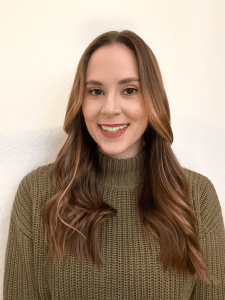Disability Accommodations for Residents and Fellows
The University’s disability accommodation process is designed to explore reasonable accommodations for employees with medical conditions or disabilities. The process is intended to be interactive and collaborative, relying on open communication and active participation between the employee and the University. The primary goal of this process is to help the employee to perform all of the essential functions of their current position, with or without accommodation.
Reasonable Accommodation: A modification or adjustment made to a work environment, task or procedure that enables an employee with a temporary or ongoing disability to perform the essential functions of their job. Changing “the way things are usually done” in the workplace allows employees with a disability to perform all the essential functions of the job and have an equal opportunity to be successful.
Request an Accommodation
- Complete a Disability Accommodation Request (DAR). This form is completed by the resident and should not include any medical information. The DAR should only indicate what accommodation(s) are being requested, not the medical need for accommodation. The DAR is shared with the resident’s program director to make them aware of the accommodations being requested.
- Complete a Healthcare Provider Statement (HCPS). The first page is completed by the resident, and the remainder is completed by their treating provider. This is the medical support for the requested accommodation(s). If there are sections that do not apply to the resident’s specific situation the provider can simply write N/A through them.
- Submit the completed DAR and HCPS to the Disability Services Office (DSO) at dso@uw.edu or fax to 206-685-7264. DSO will review and reach out to the resident, GME, and their program director to initiate the next steps of the accommodation request process.
Frequently Asked Questions
What happens during the accommodation request process?
Accommodation Request Process (PDF)
How long does the accommodation request process take?
Residents are encouraged to submit an accommodation request as soon as possible. The complexity of the request could extend the overall timeline. While the interactive discussion process is taking place, a temporary informal accommodation may be approved and implemented. If that is not possible, then leave as an accommodation will be offered.
Who sees health-related information?
While the accommodation request process involves the resident, their healthcare provider, their Program Director (PD), the Disability Services Office (DSO), and Graduate Medical Education (GME), it is important to note that DSO is the only party that reviews health-related information from the resident’s healthcare provider. Discussions with GME, the trainee, and their PD will focus on what the trainee is requesting, not why they are requesting it. Necessary restrictions may and can be shared with GME and the PD to assist in the interactive process.
Can I share my medical disability diagnosis with my program?
Trainees are not required to disclose the medical need for an accommodation or underlying medical condition to their PD, GME, faculty, or anyone outside of DSO or UW HR.
What is retained or communicated?
An accommodation request or an approved accommodation is not retained in a trainee’s permanent file, and it is not communicated to future employers by GME or the program. If you were approved for leave as an accommodation that led to a training extension, it is possible that extended graduate date may be provided to future employers upon their request- but the reason for the leave would not be disclosed.
What is evaluated?
During the interactive process, DSO, GME, and the PD will work to determine the following:
- Confirmation that the accommodation request allows the trainee to meet all graduation requirements. Graduation requirements are typically comprised of: ACGME, board, and UW program requirements.
- Confirmation that the accommodation request allows the trainee to meet the essential functions of their job specific to their program and specialty.
- Confirmation that the accommodation request does not cause undue hardship to the hospitals or the university.
Program Director Responsibilities and Resources
Managers are often the first person an employee notifies that they might be in need of a disability accommodation. While you don’t need to be an expert in accommodation, it’s essential for you to be familiar with the University’s disability accommodation policy and know how to respond when an employee brings a concern to your attention. Your openness and support can make a big difference, guiding trainees to the right resources when they need them.
Responsibilities
- Listen attentively and respond with empathy to their concerns.
- Do not ask questions about their medical condition or disability. Take your medical hat off- don’t try to diagnose!
- Share this GME Accommodations webpage with them, and offer support of GME HR Manager Bre Leatherman (smitbre@uw.edu).
- Familiarize yourself with the UW‘s disability accommodation process using the resources listed below.
Resources
- Disability Services Office: Manager’s role in the disability accommodation process
- GME Lunch & Learn: Disability Accommodations for Applicants and Trainees
Pregnancy Accommodations
A trainee may request an accommodation from their Program Director or by contacting the Disability Services Office (DSO).
RFPU-NW CBA Article 13.2
Pregnant Residents are encouraged to seek needed accommodations to their schedules and work responsibilities during their pregnancy and for two (2) months afterwards. Pregnant Residents may request reasonable accommodations that may include, but not limited to, relief from overnight call or shifts (including home call), shifts of 24 hours or greater, and work requiring possible exposure to radiation and teratogens (both chemical and infectious). However, the pregnant Resident may request any accommodations they choose. A pregnant Resident will be granted a request for relief from working shifts of 24 hours or greater during the period of pregnancy.
UWHR Pregnancy Accommodations webpage
When pregnancy results in physiological changes that necessitate accommodation, the University will:
- Provide more frequent, longer, or flexible restroom breaks
- Modify a no food or drink policy
- Provide seating or allow for more frequent sitting if the job requires standing
- Modify lifting limits of greater than 17 pounds
- Provide reasonable break time to express breast milk for two years after the child’s birth
- Provide access to a lactation station
These accommodations do not require written certification from a health care provider.
If you feel additional accommodations are needed, complete an accommodation request and submit to dso@uw.edu. A written certification from a health care professional explaining the need for reasonable accommodation may be required.

